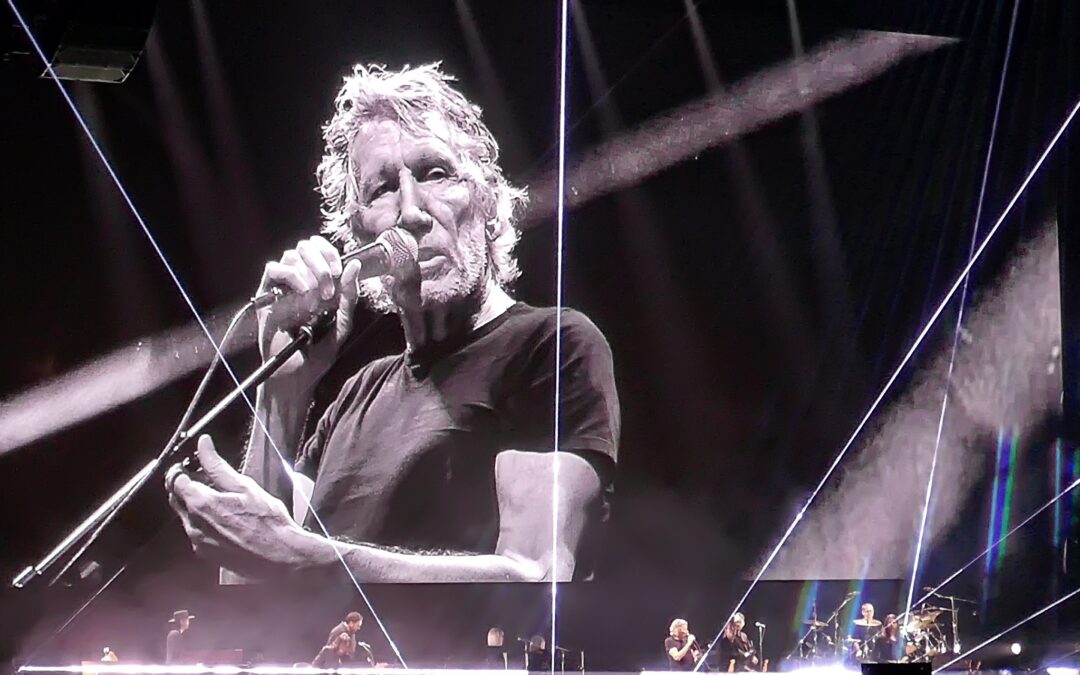The Polish city of Kraków has declared Pink Floyd co-founder Roger Waters persona non grata due to his views on Russia’s war in Ukraine. Waters had been due to play two concerts in Kraków next year but they were recently cancelled amid protests against his presence.
Yesterday, the city council unanimously adopted a resolution “on recognising people supporting the Kremlin regime as persona non grata in Kraków”, reports the Polish Press Agency (PAP). Waters was the only person mentioned by name in the document.
“Bearing in mind the criminal attack by Russia on Ukraine, as well as the coming to light of war crimes committed by Russian soldiers, the councillors express indignation at the theses and statements made by Mr Roger Waters related to the Russian invasion of Ukraine,” reads the resolution.
It also notes that, as a partner city of Lviv and Kyiv in Ukraine, Kraków “has a special duty to take a stance against the promotion of disinformation defaming the Ukrainian nation”.
For more on the attempts to have Roger Waters' concert in Kraków banned, see our previous report https://t.co/33XCzJGSIO
— Notes from Poland 🇵🇱 (@notesfrompoland) September 24, 2022
During his current tour, Waters has included Joe Biden in a montage of “war criminals”. He told CNN that the US president has been “fuelling the fire in Ukraine” and should instead “encourage [Volodymyr] Zelensky to negotiate” an end to the war, which is “basically about… NATO pushing right up to the Russian border”.
Waters then wrote to Zelensky’s wife, Olena, saying that her husband had “agreed to totalitarian, anti-democratic… forces of extreme nationalism” that have “crossed any number of red lines set out quite clearly by your neighbours the Russian Federation… and in consequence… set your country on the path to this disastrous war.”
Earlier this month, after it was announced that Waters would play two concerts in April next year at the city-owned Tauron Arena in Kraków, councillor Łukasz Wantuch began a campaign to prevent the gigs from taking place.
Last Saturday, Waters’ Kraków dates disappeared from his website and Tauron Arena confirmed that the concerts were cancelled. However, while the venue says that the musician’s management made the decision, Waters himself has denied that, saying he is the victim of “draconian censoring”.
On Sunday, in response to criticism that he had issued an appeal against the war to Olena Zelenska but not Vladimir Putin, Waters published an open letter to the Russian president.
The musician called on Putin to declare that Russia has “no further territorial interest beyond the security of the Russian speaking populations of the [Ukrainian regions of] Crimea, Donetsk and Lubansk [sic]” and to accept a negotiated peace that establishes “neutrality for a sovereign Ukraine”.
Speaking yesterday, another city councillor, Włodzimierz Pietrus, said that, even though Waters’ concerts in the city have been prevented, the resolution was needed to prevent any repeat. However, the document has no legal force in preventing anyone from visiting or performing in the city, notes PAP.
He’s just an absolutely exhausting narcissist, isn’t he? pic.twitter.com/gSJbrNDGGn
— Ben Stanley (@BDStanley) September 28, 2022
There has been a huge outpouring of support for Ukraine in Poland since Russia’s invasion, with 77% of the public saying that they have been involved in helping refugees and two thirds approving of the government’s actions, which have included strong backing for Kyiv and calls for a tougher line against Moscow.
By March, it was estimated that around 150,000 refugees from Ukraine were being sheltered in Kraków. In Poland as a whole, there are estimated to be around three million Ukrainians – both refugees and pre-war immigrants – representing 7-8% of the country’s population.
The Polish authorities have also sought to prevent the spread of Russian propaganda, including by taking Russian TV stations off the air and blocking access to certain websites.
Main image credit: miKe/Flickr (under CC BY-NC-ND 2.0)

Daniel Tilles is editor-in-chief of Notes from Poland. He has written on Polish affairs for a wide range of publications, including Foreign Policy, POLITICO Europe, EUobserver and Dziennik Gazeta Prawna.




















